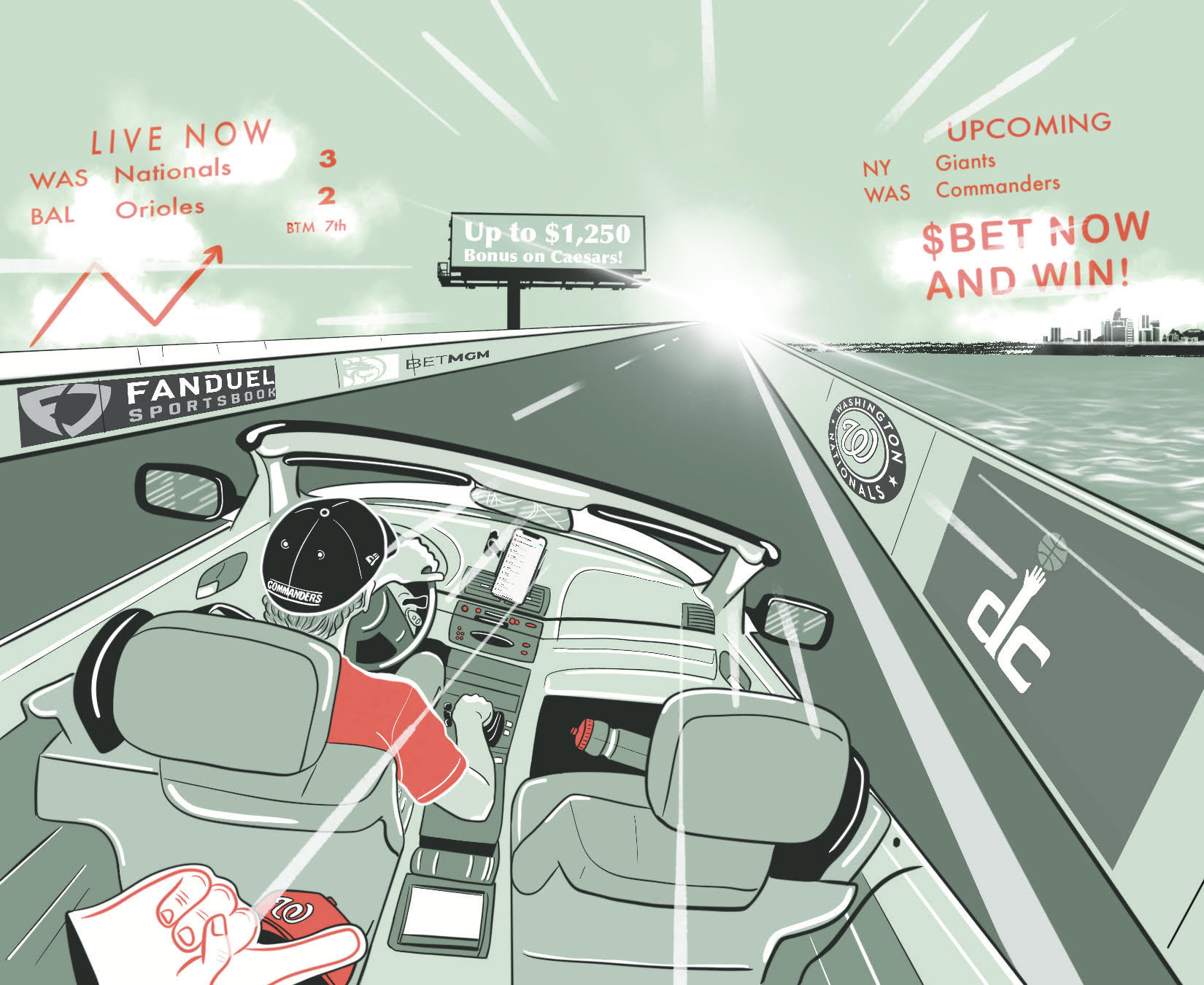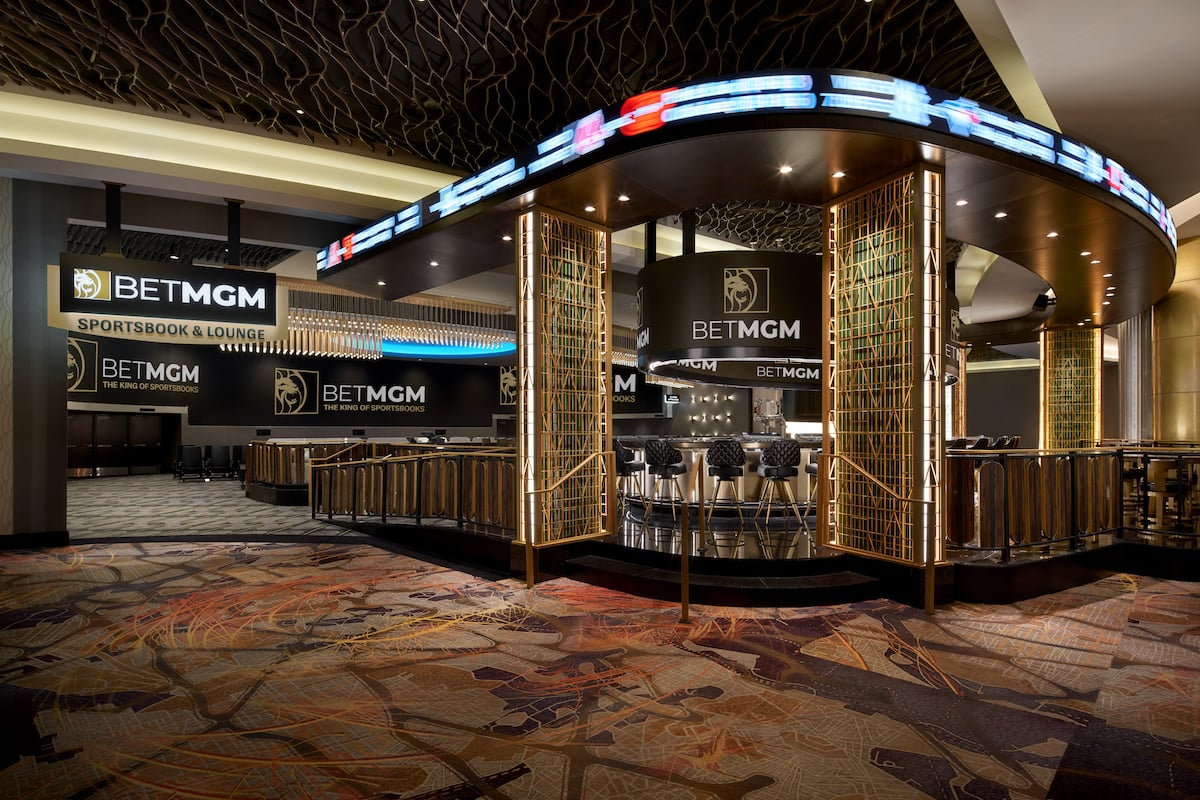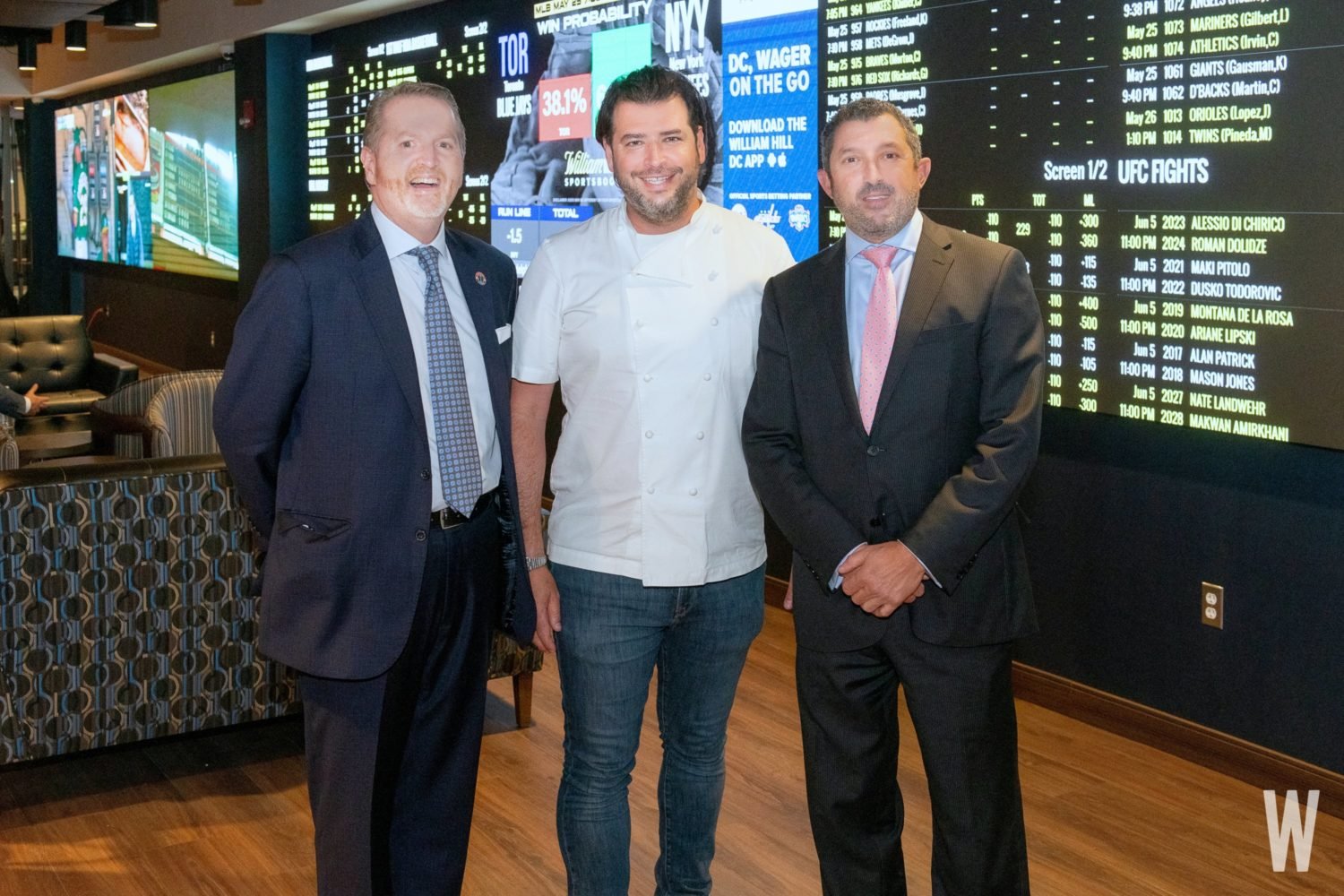When Caleb, a financial manager in Leesburg who prefers not to use his last name, sees a promotion pop up on one of his sports-betting apps—such as an offer that increases the odds of a winning bet—it’s time to get in the car. He’s plotted out a route that hits three states in quick succession so he can use the promotion three times. After starting in Virginia, he drives over the border to West Virginia, where he’ll stop in the parking lot of a pizza restaurant to place a bet. Then he cruises to Brunswick, Maryland, a small city that abuts the Potomac River, pausing long enough to make another wager before circling home. The journey takes about an hour and 15 minutes. “You have to weigh out the value proposition of ‘Is it worth it for me to make this trip?’ ” he says. “It’s not that bad if it’s something that’s actually going to make you money.” The trek is a net positive about 40 percent of the time, and Caleb has won up to $2,520 on a single trip.
He isn’t the only local taking advantage of the region’s easy access to multiple states. A 2018 Supreme Court decision reversed a previous ban on sports gambling, paving the way for states to legalize it, each with its own set of rules. For DC-area residents, it’s relatively low effort to place bets within different borders, maximizing the chances of cashing in. Online sports-betting apps use GPS to figure out if a user is physically in the state where that person is trying to gamble. Once the geolocation technology confirms you’re within the border, you can place a bet from the car or even on the Metro. There’s no need to be a resident of that state.
There are a few reasons diehards cross state lines for a wager. Sportsbooks—betting venues and websites such as Caesars, BetMGM, and FanDuel—will often run promotions that are available in multiple states, and participating in one place doesn’t always preclude you from using the bonus in a different one. On other occasions, a great offer might be available in only one destination within driving distance. Another financial analyst, Robert (not his real name), lives in Northwest DC but works in Baltimore, making it easy to place bets in the District and Maryland. When promotions appear from different states, he uses an equation to figure out if he should travel. “The way I think about it is that my time is worth a certain amount an hour,” he says. This past spring, Robert saw that the betting platform DraftKings was offering $1,000 in free play with a $1,000 deposit. The catch? It was available only in New Jersey. Robert calculated it would take about an hour and 15 minutes to drive from his Maryland workplace to the Garden State—a worthwhile endeavor using his time-is-money equation. Heading north, he pulled off at the first gas station over the New Jersey line (a WaWa), spent about nine minutes placing a bet, then turned around to go home. The entire trip took about two and a half hours.
Another reason someone might travel to place a bet? Frustrations with DC’s geofencing policies can push residents out of the city. Currently, you must be within a two-block radius of a physical sportsbook to make an online wager, or you can use the city’s platform anywhere in DC. Small businesses can also apply for a sports-betting license, which is why the DC strip club Cloakroom has an onsite sportsbook. Rather than venture into the radiuses, Capitol Hill resident Chris—who works in marketing and also doesn’t want to give his last name—will leave the city up to three times a week to place bets in Virginia. He’s particularly annoyed with the geofencing during baseball season: There are a few spots to idle a car near Nationals Park if you want to place a bet within the boundaries, but those spaces are blocked off on game day. (During football games, when the area around the baseball stadium is clear, he’ll see many cars loiter in front of the sportsbook, flashing their lights to signal they’ll be stopping only a moment.) Instead of heading to Navy Yard, Chris drives to Arlington, where he pulls off on the side of Fern Street for about 15 minutes to place a bet before returning to DC. “The decision to geolocate is frustrating,” Chris says. “I’m not the only person who does this—it would be better to not have to leave the house.”
If you do leave your home, city, or state for a wager, there’s always the opportunity to bundle betting with another errand. Robert, the financial analyst, will couple a wager in Virginia with a trip to Costco. Meanwhile, Caleb has figured out a safe bet, offering to pick up dinner from his wife’s favorite Maryland restaurant when he ventures out on his loop. As he puts it, “It’s kind of a win-win situation for both of us.”
This story appears in the September 2023 issue of Washingtonian.



















